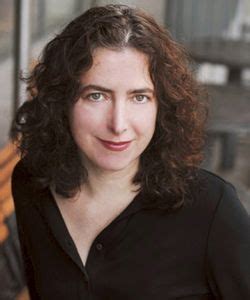A Quote by Ayana Mathis
I've been writing all my life. Even though I didn't have sort of careerist aspirations as a writer, it was very much my identity.
Related Quotes
I think I started writing about identity, and I used to believe that identity is the story. But now I'm not so much subscribed to that. I mean, with 'Mr. Fox,' it has a feminist agenda as well. And so, as I sort of been away from writing about identity, I still feel that kind of tug of roots and, you know, cultural background.
I found that life intruding on writing was, in fact, life. And that, tempting as it may be for a writer who is a parent, one must not think of life as an intrusion. At the end of the day, writing has very little to do with writing, and much to do with life. And life, by definition, is not an intrusion.
I got so discouraged, I almost stopped writing. It was my 12-year-old son who changed my mind when he said to me, "Mother, you've been very cross and edgy with us and we notice you haven't been writing. We wish you'd go back to the typewriter. That did a lot of good for my false guilts about spending so much time writing. At that point, I acknowledged that I am a writer and even if I were never published again, that's what I am."
The question of identity has always been a murky issue in my own life and my writing bounces that right back. My father was adamant that my sisters and I were "Arab," and even though our house was in Syracuse, it was filled with the food, language, music, and overbearing relatives of Jordan. Unlike my gorgeous sisters, though, I inherited my mother's lighter complexion - it really is amazing what a difference a little bit of pigment can make on a person's experience!
I believe a good writer can write a good book with any sort of character, in any sort of setting, but I prefer to write about the outsider. It might just be because I've been one (or perceived myself to be one) for so much of my life. But the simple fact of being marginalized immediately brings conflict to a story before the narrative even begins, and that's gold for a writer because it means that your character already has depth before events begin to unfold.
My literary criticism has become less specifically academic. I was really writing literary history in The New Poetic, but my general practice of writing literary criticism is pretty much what it always has been. And there has always been a strong connection between being a writer - I feel as though I know what it feels like inside and I can say I've experienced similar problems and solutions from the inside. And I think that's a great advantage as a critic, because you know what the writer is feeling.
I think the first thing - if you want to be a writer - the first thing you need to do is write. Which sounds like an obvious piece of advice. But so many people have this feeling they want to be a writer and they love to read but they don't actually write very much. The main part of being a writer, though, is being profoundly alone for hours on end, uninterrupted by email or friends or children or romantic partners and really sinking into the work and writing. That's how I write. That's how writing gets done.



































